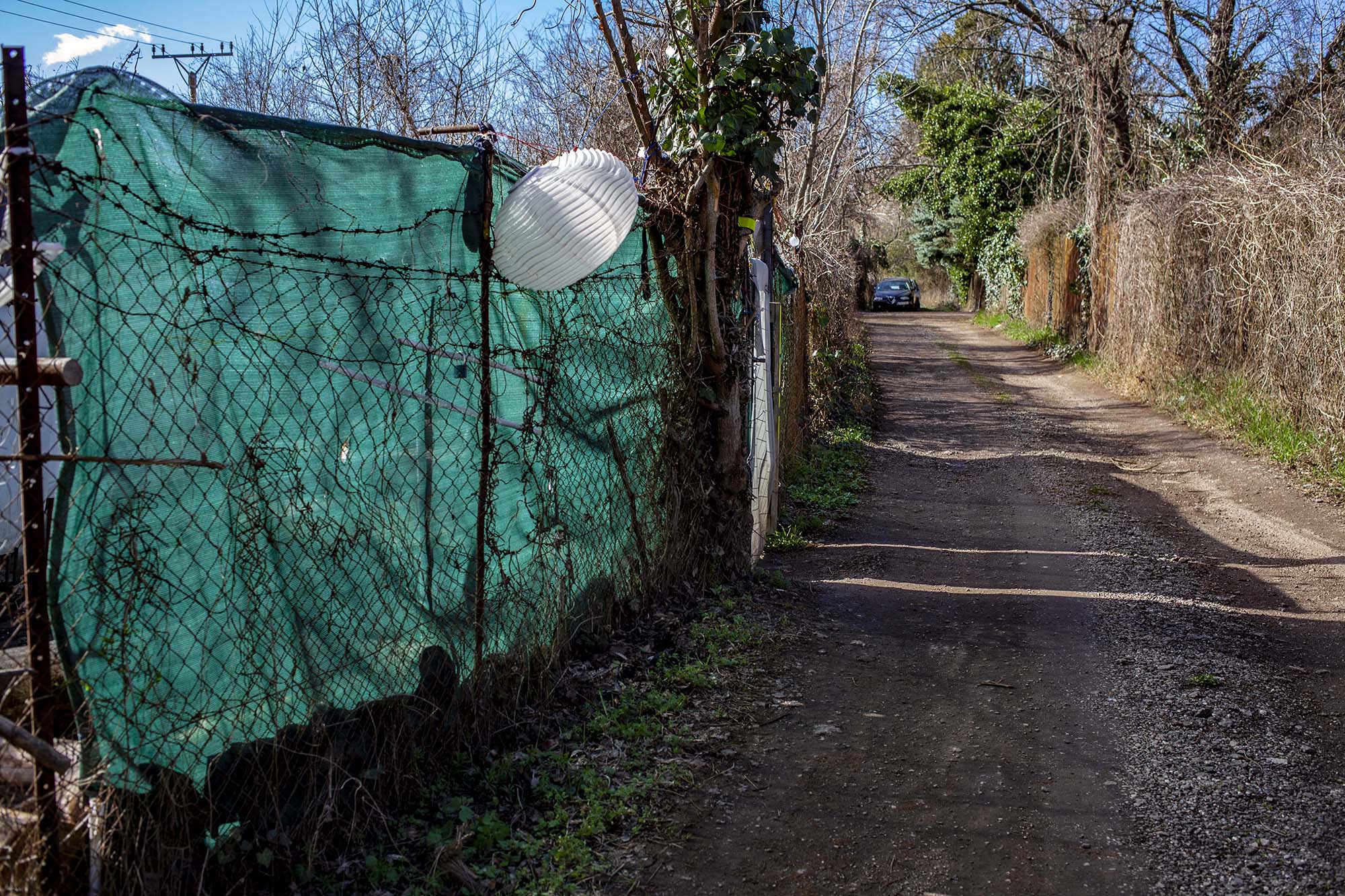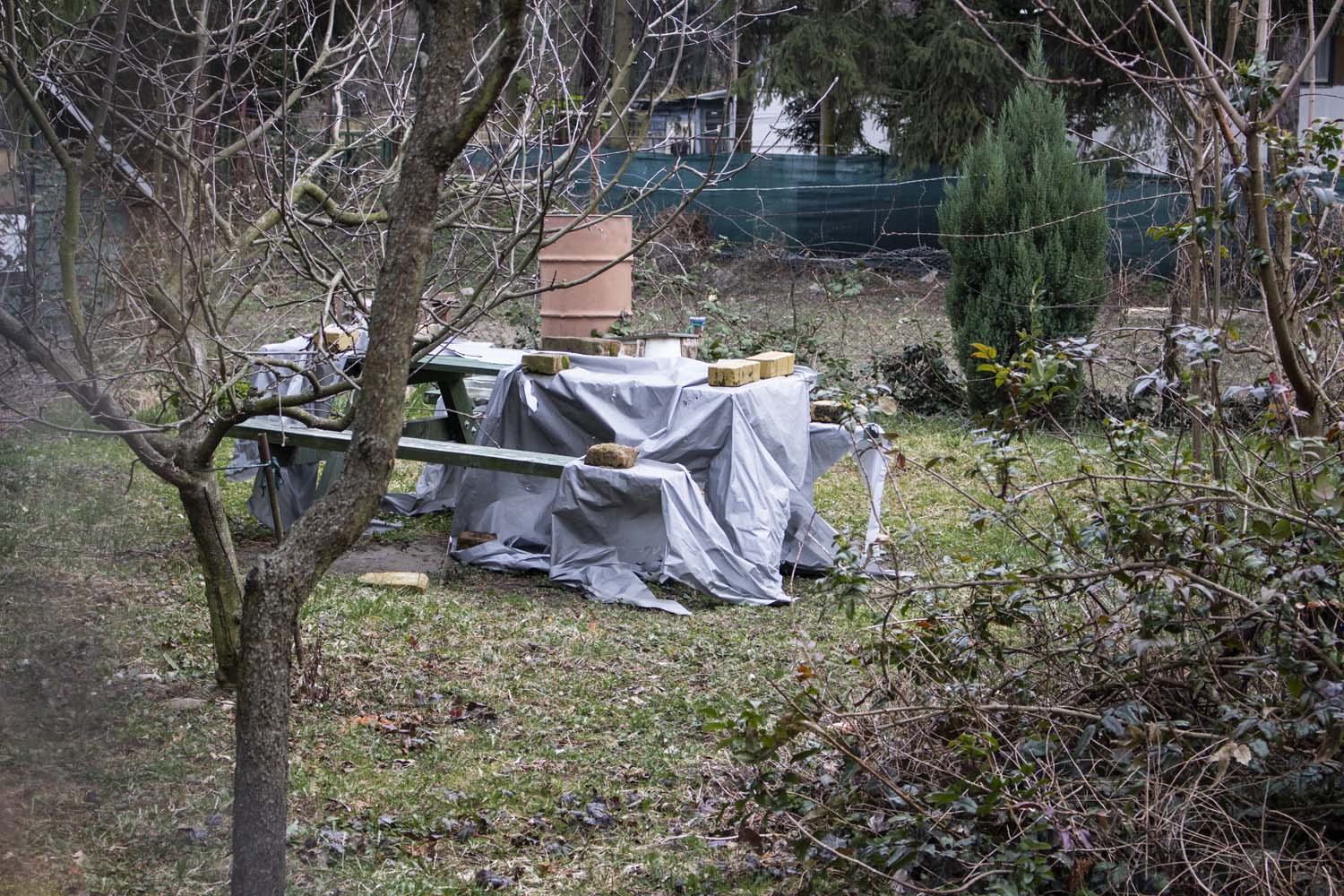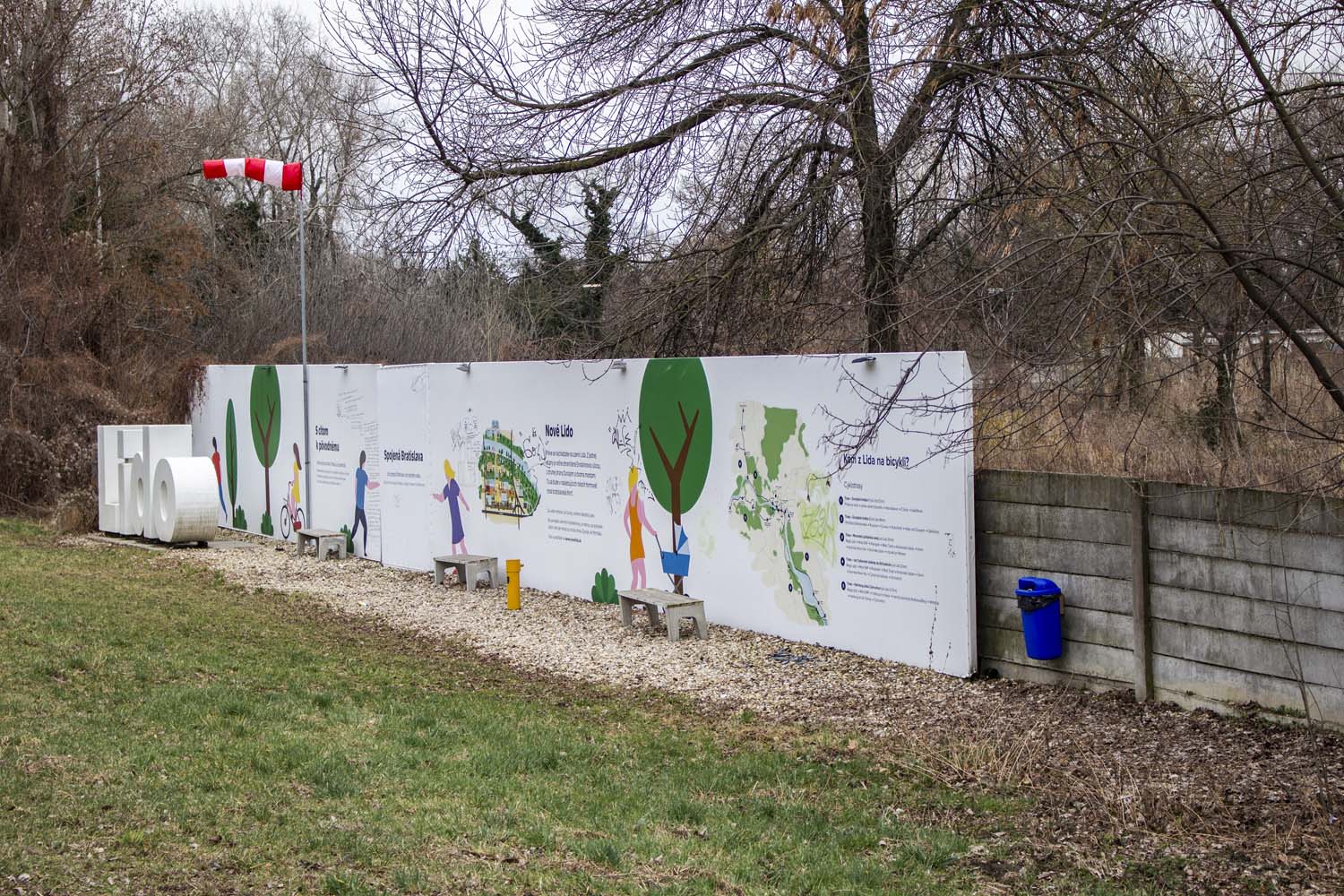Social Housing as a Compulsory Segment of Development Projects
Petra Červená
The homeless people we work with in the territory of the future
development project entitled Nové Lido lack sufficient information
regarding the planned construction.
The developer has not communicated with them, and as a result they are not aware of the seriousness of their situation and if they will have to actually move out. They have heard about the development for years, but to date, nothing has happened. This is also why they do not see any reason for why they should consider leaving.
During our regular field social work, we talk with them about the development, but they do not consider information coming from us as relevant; on the other hand, we have no official information regarding dates.
The Lido location is advantageous for homeless people because it is close enough to the city center but far enough away from the bustle and noise – they have peace and safety, in short a place where they can hide.
Most homeless people in this location live in cabins, but they are not the owners; thus, when moved out they will not be entitled to replacement housing. The cabins shelter them from the cold and give them sufficient privacy. They can grow plants and live in relative comfort.
If they have to leave and do not receive adequate replacement accommodations, it is more-or less certain that their situation will deteriorate.
As a rule, the homeless suffer from long-term health issues which may worsen due to the lowering of the quality of their housing, and the resulting medical care will be paid from the public health insurance.
We have encountered similar cases of homeless people being moved out; only this year, we addressed the theme of eviction or its threat involving 58 persons in twelve locations in Bratislava 67 times. In some cases, the developer informed the clients of the necessity to move out only four days in advance, and a person who had lived there for sixteen years had no idea where to take his belongings. In this situation we cannot help, since the capacity of the services in Bratislava is not sufficient. In another case, the developer was more welcoming and gave the homeless people several months to move out and postponed the demolition work and the commencement of construction to the spring.
We recommend several solutions to resolve this situation. Homeless people who are moved out should receive free housing for at least for some period of time in order to figure out their situation and not suffer an abrupt decrease in their standard of living. In practice, for individuals who have a cabin with personal items in it, the possibilities for personal hygiene and safety, in which they can sleep and commute to some temp work, will deteriorate to such a degree that they will lose their personal items, because they have no place to store them. They will also lose a stable place to sleep and carry out personal hygiene.
If eviction is absolutely necessary, the developer should consider whether people in this situation will be put out in the riskiest months of the year, in winter or during summer heat.
Most importantly, homeless people need to have relevant information to make arrangements. If this does not happen, the developer just makes the situation more difficult for himself.
Therefore, we ask the developer to act responsibly and address the situation in time together with the Bratislava municipality and non-profit organizations.
One of the most systematic solutions is for city representatives and the general public to urge developers to allocate a certain number of social rental apartments within development projects.
The developer has not communicated with them, and as a result they are not aware of the seriousness of their situation and if they will have to actually move out. They have heard about the development for years, but to date, nothing has happened. This is also why they do not see any reason for why they should consider leaving.
During our regular field social work, we talk with them about the development, but they do not consider information coming from us as relevant; on the other hand, we have no official information regarding dates.
The Lido location is advantageous for homeless people because it is close enough to the city center but far enough away from the bustle and noise – they have peace and safety, in short a place where they can hide.
Most homeless people in this location live in cabins, but they are not the owners; thus, when moved out they will not be entitled to replacement housing. The cabins shelter them from the cold and give them sufficient privacy. They can grow plants and live in relative comfort.
If they have to leave and do not receive adequate replacement accommodations, it is more-or less certain that their situation will deteriorate.
As a rule, the homeless suffer from long-term health issues which may worsen due to the lowering of the quality of their housing, and the resulting medical care will be paid from the public health insurance.
We have encountered similar cases of homeless people being moved out; only this year, we addressed the theme of eviction or its threat involving 58 persons in twelve locations in Bratislava 67 times. In some cases, the developer informed the clients of the necessity to move out only four days in advance, and a person who had lived there for sixteen years had no idea where to take his belongings. In this situation we cannot help, since the capacity of the services in Bratislava is not sufficient. In another case, the developer was more welcoming and gave the homeless people several months to move out and postponed the demolition work and the commencement of construction to the spring.
We recommend several solutions to resolve this situation. Homeless people who are moved out should receive free housing for at least for some period of time in order to figure out their situation and not suffer an abrupt decrease in their standard of living. In practice, for individuals who have a cabin with personal items in it, the possibilities for personal hygiene and safety, in which they can sleep and commute to some temp work, will deteriorate to such a degree that they will lose their personal items, because they have no place to store them. They will also lose a stable place to sleep and carry out personal hygiene.
If eviction is absolutely necessary, the developer should consider whether people in this situation will be put out in the riskiest months of the year, in winter or during summer heat.
Most importantly, homeless people need to have relevant information to make arrangements. If this does not happen, the developer just makes the situation more difficult for himself.
Therefore, we ask the developer to act responsibly and address the situation in time together with the Bratislava municipality and non-profit organizations.
One of the most systematic solutions is for city representatives and the general public to urge developers to allocate a certain number of social rental apartments within development projects.



Photo credits: Andrea Kalinová